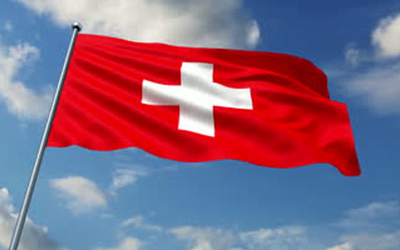by Thomas Fleiner
On Sunday November 27, the Swiss sovereign (according to Article 195 as well as Article 142 par two of the Constitution1) decided on a popular constitutional initiative concerning the organized and controlled exit from nuclear energy2. The decision was made with a turnout of some 49% against the initiative voted 54% while 45% voted yes. 18 cantons voted no and only 5 cantons voted yes.
Actually, the two chambers of Parliament have adopted a new Swiss law on energy3. The federal council proposes based on the revised energy perspectives a long term vision for 2050. Based on these proposals both chambers of Parliament have adopted the new law on energy. However, a major party has already launched a referendum against this law. Switzerland has five nuclear power-plants, which produce 36% of the electric energy. The oldest has been constructed 47 years ago, the youngest 32 years ago. The initiative provides that all nuclear power-plants shall stop their activity the latest by 2029. As from Switzerland originate rivers, which flow into four different oceans such as the North Sea, the Adriatic Sea, the Mediterranean Sea, and even the Black Sea, waterpower as renewable energy is most important for Switzerland. It covers 56% of the energy. The initiators propose to replace Article 90 of the Constitution which actually empowers the federal legislature to legislate in the field of nuclear energy without any restriction. They propose a new Article 90, which contains two paragraphs. In the first paragraph, it forbids to produce electricity and heat by any nuclear power plant. Paragraph 2 of this new provision commits the legislator to focus on energy saving, efficient use of energy and the production of renewable energy. Within such legislation, lawmakers should additionally take Article 89 par 2 and 3 of the existing Constitution into account. The main argument of the initiators after the disaster of Fukushima is security for the people but also planning security for companies. In case of a similar catastrophic disaster of Fukushima, Switzerland would have to evacuate at least one million persons. In addition, the disaster would contaminate for long and unforeseeable time big part of the land and territory of Switzerland. The Swiss with their oldest nuclear firms seem just to afford such a catastrophic risk for the population. In principal, exit from nuclear energy is uncontested. However, Switzerland lacks of a fair and predictable plan. This popular initiative guarantees that until 2029 firms withdraw from the production of nuclear energy. Both chambers of Parliament, including the federal council, recommend that voters reject this initiative. They argue, that to shut off the Swiss nuclear power-plants overhasty would additionally require the import of power with foreign coal fired and nuclear power station. This is ecologically non meaningful and raises concerns about the international dependence of Switzerland on its foreign neighbours. The Federal Council wants to step out gradually of the nuclear energy with the use of domestic renewable energies. Actually, Switzerland already replaces electrical stream with renewable energy. The Federal Council sets on a gradual exit from nuclear energy, which keeps up to domestic renewable energies. Such policy creates security of energy supply; it provides chances for the economy and stable employment. The firms producing nuclear energy claim already billions of compensation. For these reasons, the Federal Council and both chambers of Parliament recommended that voters should reject this initiative.
1.For the Swiss constitution see the English translation of the Constitution in: https://www.admin.ch/opc/en/classified-compilation/19995395/201601010000/101.pdf
2.For the explications of the Federal Council of Switzerland in French see: file:///C:/Users/FLEINER%20Thomas/AppData/Local/Microsoft/Windows/INetCache/IE/OX05ECNS/27-11-2016_FR_screen.pdf
3. See the French version of this proposed law: FF2016 7469, https://www.admin.ch/opc/fr/federal-gazette/2016/7469.pdf
